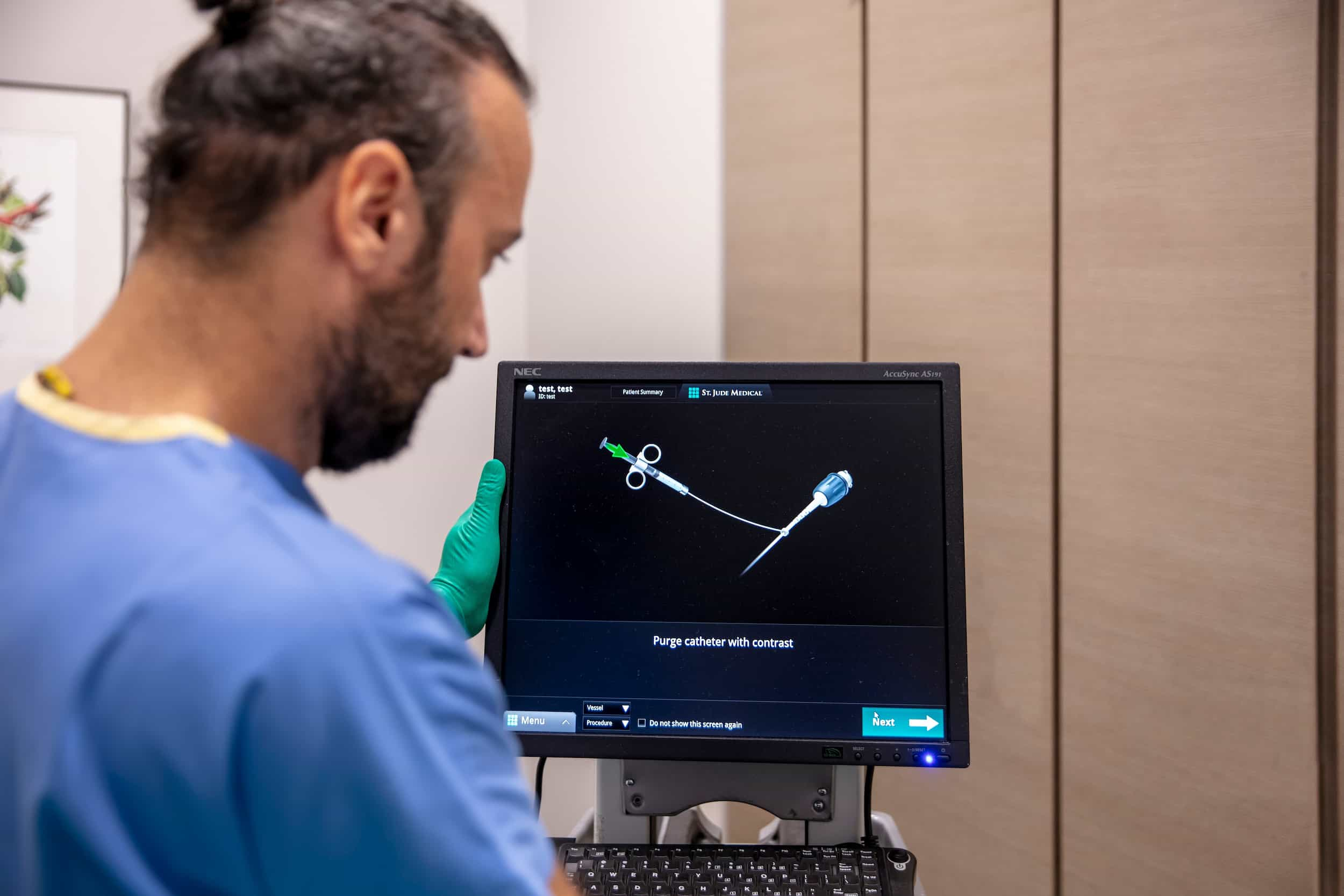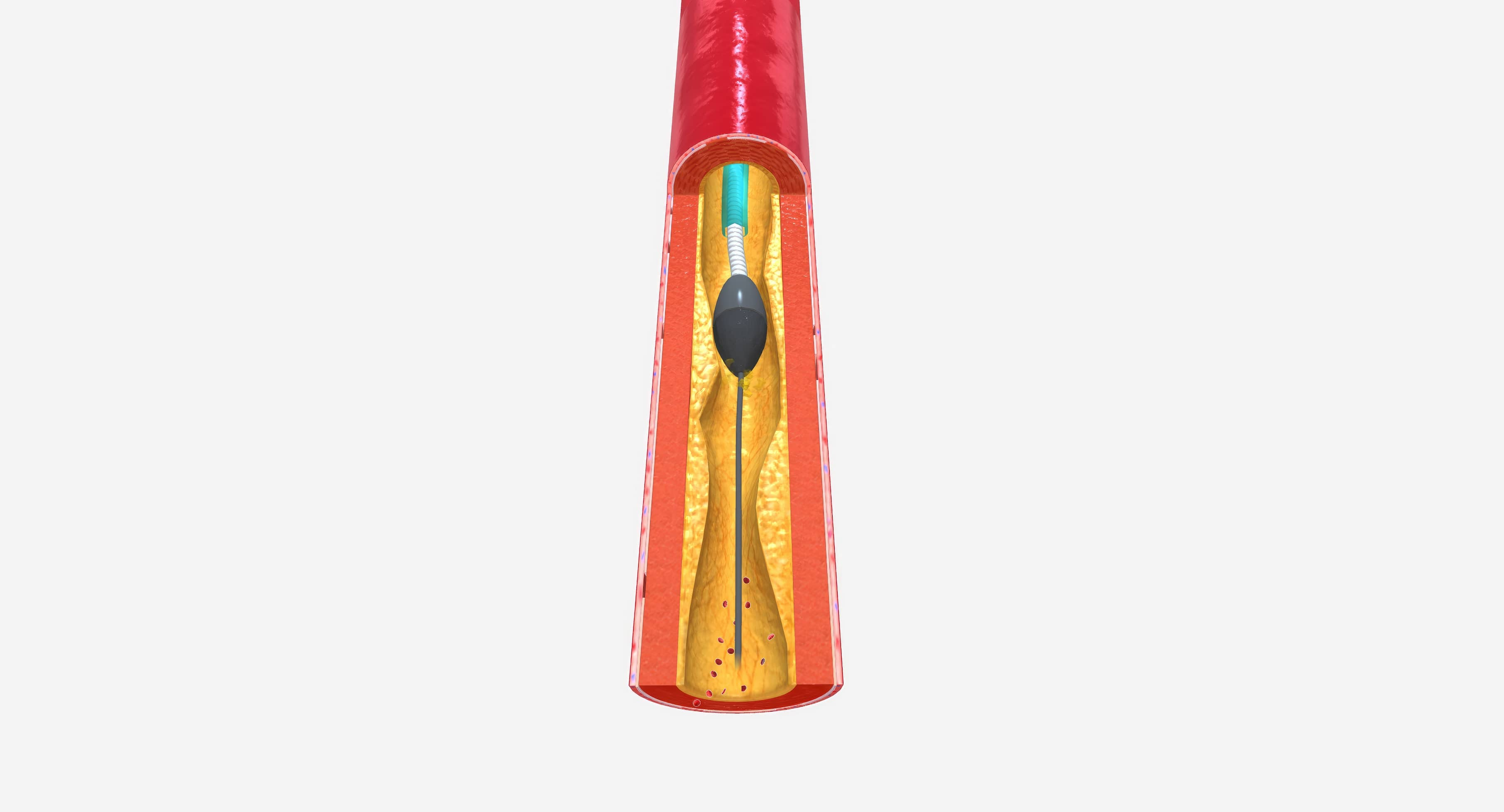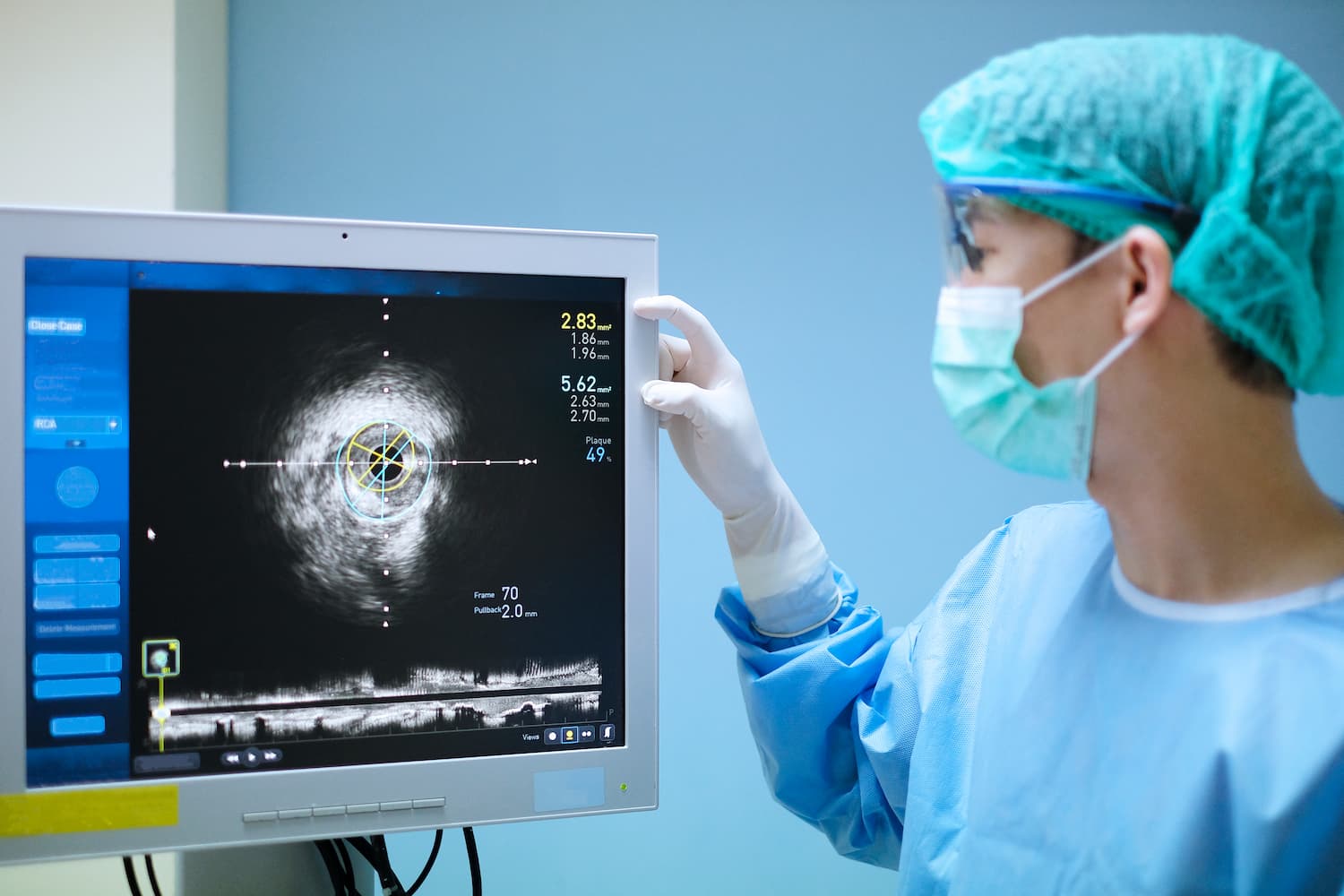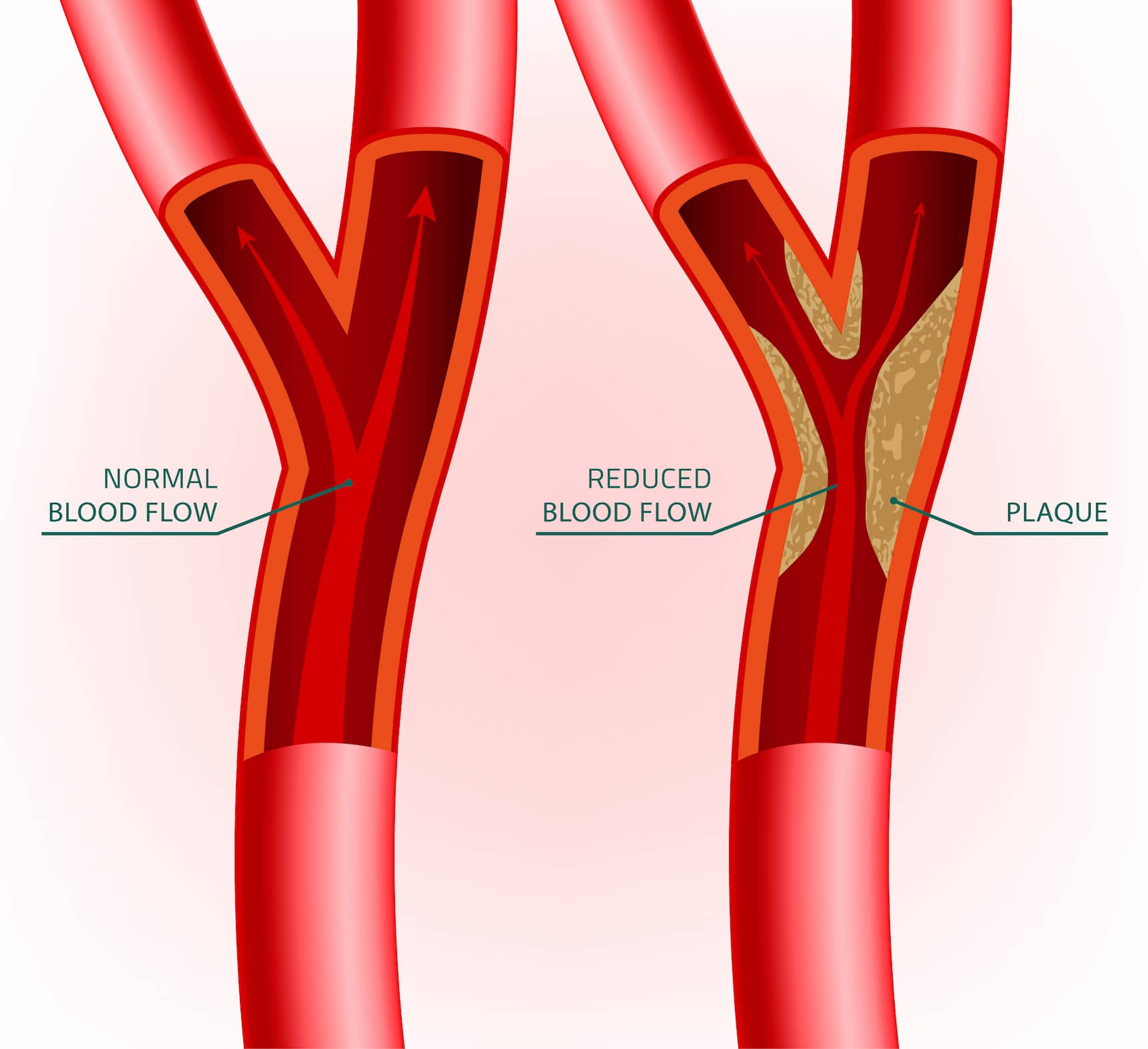Atherectomy in Turkey
Healthy Türkiye helps you find the best atherectomy in Turkey at affordable prices and adopts a 360-degree service approach in all areas of health through affiliated hospitals.
- Medical Treatment
- Cardiac Surgery in Turkey
- Balloon Valvuloplasty in Turkey
- Coronary Angiography in Turkey
- Heart Bypass Surgery in Turkey
- Pediatric Cardiac Surgery in Turkey
- Aortic Aneurysm Surgery in Turkey
- Atherectomy in Turkey
- Cardiac Ablation Treatment in Turkey
- Carotid Endarterectomy in Turkey
- Coronary Angioplasty in Turkey
- DOR Procedure in Turkey
- Open Heart Surgery in Turkey
- Pacemaker Implantation in Turkey
- Valve Replacement in Turkey
- Defibrillator Implant Surgery in Turkey
- Transmyocardial Revascularization in Turkey
- Transcatheter Aortic Valve Replacement in Turkey
- Homepage
- Medical Treatment
- Atherectomy in Turkey

About Atherectomy in Turkey
An atherectomy in Turkey is used to treat restricted or obstructed coronary arteries that are difficult to repair with stents. Coronary atherectomy is a procedure that opens clogged coronary arteries and increases blood flow to the heart muscle. Coronary arteries are blood channels that carry oxygenated blood to the cardiac muscles. An angioplasty may be preceded by a coronary atherectomy.
To remove plaque from the blood vessels, an atherectomy treatment involves introducing a catheter with a tiny rotating shaver at its tip into the artery. The catheter may need to be passed several times to remove a large quantity of atherosclerosis (plaque buildup). In the following cases, your doctor will propose coronary atherectomy:
If you have angina (chest discomfort) and shortness of breath, both of which are obvious indications of coronary artery disease (CAD), and you have had a heart attack or a coronary bypass graft that has closed or constricted.
If you require any further information on atherectomy, please do not hesitate to contact Healthy Türkiye. The major goal is to deliver the best heart bypass surgery choices in Turkey at the lowest possible cost. As a result, we value our visitors’ health and well-being by partnering with top heart surgeons and providing the best treatment in Turkey.
Healthy Türkiye invites you to learn more about heart bypass surgery in turkey , including the process and cost, before making a decision. An individually assigned consultant takes a particular interest in designing a custom treatment plan for each visitor and delivers a definite timing and cost for the atherectomy in Turkey.

Atherectomy Procedure in Turkey
Atherosclerosis is removed from a blood vessel using a minimally invasive treatment known as atherectomy in Turkey. It is also employed in the treatment of peripheral arterial disease and coronary artery disease. Plaque is removed with a sharp blade linked to a catheter. The catheter collects and removes the plaque.
The buildup of fat, cholesterol, calcium, and other substances in arteries is known as plaque. Plaque can either limit or break blood flow, resulting in blood clots. Plaque buildup is what causes atherosclerosis. An atherectomy is used to treat atherosclerosis.
A fatty plaque is referred to as ather. The surgical removal of something is referred to as an “ectomy.” This procedure removes fatty plaque from the arteries. For persons with peripheral arterial disease , this is a minimally invasive vascular treatment (PAD).
An atherectomy is a treatment that removes plaque from an artery (blood vessel). Plaque clearance allows more blood to flow freely to the heart muscles by widening the artery. During an atherectomy, the plaque is shaved or vaporized away using small rotating blades or a laser on the end of a catheter (a thin, flexible tube). Patients who have very hard plaque or who have had angioplasty and stents but still have plaque restricting blood flow may benefit from surgical atherectomy in Turkey.
This atherectomy operation may be required if your arteries become excessively constricted or clogged owing to plaque within the arterial walls. When arteries get clogged, blood cannot reach the tissues to nourish them, producing cramping and weakness in the lower extremities. An atherectomy is particularly effective for resolving arterial blockages that develop around branches or in arteries that are difficult to treat with stents.

We Care About Your Health
Healthy Türkiye provides the best for your health and comfort. You will feel privileged with us.
7/24 Quality Personal Assistance Throughout Your Journey
Customizable for You All-Inclusive Packages
Get the Right Advice for your Health
How Is Atherectomy Performed in Turkey?
An atherectomy is the removal of plaque from an artery (blood vessel). Plaque removal widens the artery, allowing blood to flow more easily to the heart muscles. The plaque is shaved or vaporized away during surgical atherectomy in Turkey using small revolving blades or a laser on the end of a catheter (a thin, flexible tube).
This treatment is used to treat both peripheral and coronary artery disease. An atherectomy is occasionally performed on individuals who have very hard plaque or who have already undergone angioplasty and stents but still have plaque impeding the flow of blood.
A cardiac catheterization lab is used for atherectomy in Turkey. Sedatives are given to the patient before the atherectomy to help him or her relax. Following that, a catheter is gently placed into an artery, often in the groin or upper thigh. It is subsequently sent toward the heart through the blood channel. When the catheter is in place, dye is delivered into the coronary arteries via the catheter. An X-ray is done to assist the doctor in determining the region that is restricted or constricted.
The physician then cuts or vaporizes the plaque with small blades or a laser affixed to the end of the catheter. An angioplasty or stent operation is occasionally performed after the atherectomy. The catheter is withdrawn once the therapy is finished. Most patients are discharged within 24 hours.
What Diagnostic Tests Are Performed Prior to Atherectomy Surgery?
An atherectomy in Turkey is a treatment that uses a catheter with a sharp blade on the end to remove plaque from a blood vessel. While the patient is anesthetized, the catheter is placed into the artery through a tiny puncture. The catheter is designed to collect the removed plaque in a chamber at the tip of the device, allowing the plaque to be removed when the device is withdrawn from the artery.
A diagnosis is done before initiating any therapy to ascertain the person’s symptoms and kind of ailment. Before initiating atherectomy therapy or surgery, the following diagnostics are made:
Blood tests: A blood test might be used to check the levels of various blood parameters as well as the presence of any underlying medical conditions such as diabetes.
Urine tests: Urinalysis is used to diagnose urinary infections.
Electrocardiogram (ECG): This test can be used to record the electrical activity of the heart and to diagnose heart abnormalities.
Echocardiogram: An ultrasound can be used to obtain images of the heart, which aids the doctor in evaluating the heart’s pumping action.
Coronary angiogram: By injecting a contrast dye into the arterial system and coronary vessels and then taking an x-ray, the location and extent of blood vessel blockages are determined. This test is usually recommended if there will be a possibility of coronary artery disease (blockage of the blood vessels supplying the heart muscle).
Imaging tests: Imaging tests such as x-rays, CT scans, MRI scans , and ultrasounds can be used to obtain clear images of the body’s internal organs.
Atherectomy in Turkey is used to eliminate plaque accumulation in your arteries. Atherectomy is the surgical removal of an atheroma. An atheroma is an abnormal deposit of fat within a blood vessel’s wall. As the plaque grows in size, the channel gradually narrows, reducing blood flow to the tissue it serves. This causes a disease known as atherosclerosis, which can be fatal if not treated.

Types of Atherectomy in Turkey
The removal or excision of an atheroma is known as an atherectomy in Turkey. An atheroma is an abnormal deposit of fat within a blood vessel wall with a fibrous cap on top. The blood vessels gradually constrict as fat storage grows. This has an impact on the blood flow to the tissue or organ that it serves. As a result, a disease called atherosclerosis develops. This disorder can be fatal if it arises in blood vessels such as the coronary arteries (the blood vessels that supply the heart).
There are four forms of atherectomy based on the type of equipment used to remove the plaque from the catheter. These are some descriptions:
Directional atherectomy: The catheter has a cutting tip that softly shaves the plaque away. The fragments are gathered and removed in a separate section of the catheter. The devices authorized by the Turkish Ministry of Health, for directed atherectomy in Turkey can only be used in peripheral blood vessels and not in the coronary, carotid, iliac, or renal arteries.
Rotational atherectomy: The cutting point rotates quickly and grinds the plaque into a powder, which is then safely flushed away in the bloodstream.
Laser atherectomy: The catheter tip is ensured with a device that emits a high-energy laser to alter or vaporize the plaque material.
Orbital atherectomy: This is the latest method that uses a high-speed rotational device similar to the rotational atherectomy but with a slightly modified tip.
The atherectomy in Turkey includes carefully removing the accumulated plaque with a catheter and an especially pointed device. Plaque development can occur as a result of fat, cholesterol, calcium, cellular waste, and fibrin (a substance implicated in blood clotting) buildup in blood vessel walls. A catheter is a tiny tube that may be introduced into the body to treat illnesses or perform surgical procedures. The catheter is inserted into a peripheral artery (an artery in the arm, leg, hand, or foot), such as the femoral artery, and then progressed into the afflicted blood vessel.
Good Candidate for Atherectomy in Turkey
An atherectomy in Turkey is a surgery that removes plaque from a blood vessel (artery) and restores blood flow to the heart. Healthy Türkiye helps you to find the best diamondback and cardiac (coronary) laser atherectomy treatments in Turkey. Patients who have plaque accumulation inside their artery walls and are having cardiac problems or symptoms as a result of this buildup are candidates for an atherectomy.
The coronary arteries supply your heart with blood, oxygen, and nourishment. Plaque development can restrict these arteries, reducing blood flow to your heart. Reduced blood flow may eventually lead to chest discomfort (angina), shortness of breath, or other signs and symptoms of coronary artery disease. In addition to developing foot and leg problems, blocked arteries can cause dizziness, weakness, and heart palpitations. You may also experience sweating, nausea, or trouble breathing.
Good candidates have significant peripheral artery constriction that cannot be addressed readily with angioplasty and stenting and is not good candidates for bypass surgery. Turkish surgeons also frequently suggest laser atherectomy for individuals suffering from diabetes problems. All candidates are advised to speak with their doctor about the potential advantages, risks, and side effects of any surgical operation.
Atherectomy Recovery
Atherectomy typically gives considerable relief to patients suffering from atherosclerosis symptoms. Your doctor will go through the procedure’s results with you. If atherosclerosis is to be avoided, the patient must endeavor to live a healthy lifestyle. Typically, the therapy has no negative effects.
Following a heart attack, one can usually resume regular activities after a few weeks following the atherectomy in Turkey. Doctors often provide particular rules for patients’ faster recovery. Patients should always attempt to follow the advice supplied by the doctor. Remember that your doctor is a partner in your rehabilitation, so don’t be afraid to challenge them. Healthy Türkiye provides a variety of cardiology , cardiovascular surgery, and other disciplines in Turkey.
Atherectomy vs. Angioplasty with Stent Placement | Which is better?
The use of stents during coronary angioplasty has grown in recent years. Stents can enhance both short- and long-term clinical results in certain individuals. Extending stent usage to patients with complicated lesions or tiny arteries, on the other hand, provides fewer positive results. Directional coronary atherectomy was created to remove obstructive coronary atheroma and, when paired with intravascular ultrasonography, has shown good long-term outcomes in patients with coronary artery disease. There have been no current studies that compare the efficacy of primary stenting to that of directed coronary atherectomy.
The Stent vs. Directed Coronary Atherectomy Randomized Experiment (START) was a randomized clinical trial that compared primary stenting to aggressive directional coronary atherectomy. Patients were eligible for the trial if their angiographic results showed they had acceptable coronary artery lesions for stenting or directed coronary atherectomy. Those who met the enrollment requirements were randomly assigned to either angioplasty stent implantation or directed coronary atherectomy. Patients were evaluated for different problems and blood chemistry at baseline, as well as four, six, and twenty-four hours after surgery. Clinical follow-up exams with coronary angiography and intravascular ultrasonography were performed at three, six, and twelve months to assess the occurrence of an adverse cardiac event. The study’s major angiographic endpoint was restenosis six months following the operation.
The authors conclude that directed coronary atherectomy outperforms primary stenting during angioplasty in terms of clinical and angiographic results in individuals with coronary artery disease. They also emphasize that relatively large vessels are most suitable for directional coronary atherectomy in Turkey.
Laser Atherectomy in Turkey
A catheter that produces high-intensity light (laser) to unclog the artery is used in laser atherectomy. The catheter is inserted into the artery and advanced until it reaches the obstruction. Laser light is utilized to vaporize the obstruction inside the vessel.
A catheter with a laser tip is used to remove plaque from an occluded coronary artery during this minimally invasive technique. The coronary arteries are the blood vessels that provide blood to the heart muscles. Laser atherectomy in Turkey is usually reserved for the removal of softer kinds of plaque.

2026 Cost of Atherectomy in Turkey
All types of medical attention, like atherectomy, are very affordable in Turkey. Many factors are also included in determining the cost of atherectomy in Turkey. Your process with Healthy Türkiye will last from the time you decide to have an atherectomy in Turkey until the time you are fully recovered even if you are back home. The exact atherectomy procedure cost in Turkey depends on the type of operation involved.
The cost of atherectomy in Turkey does not demonstrate many variations in 2022. Compared to costs in developed countries like the United States or the UK, atherectomy costs in Turkey are relatively low. So, it’s no wonder patients from across the world visit Turkey for atherectomy procedures. However, the price is not the only factor affecting choices. We suggest looking for hospitals that are safe and have atherectomy reviews on Google. When people decide to seek medical help for an atherectomy, they will not only have had low-cost procedures in Turkey, but also the safest and best treatment.
At clinics or hospitals contracted with Healthy Türkiye, patients will receive the best atherectomy from specialist doctors in Turkey at affordable rates. Healthy Türkiye teams provide medical attention atherectomy procedures and high-quality treatment to patients at a minimum cost. When you contact Healthy Türkiye assistants, you can get free information about the cost of atherectomy in Turkey and what this cost covers.
The 2025 cost of atherectomy in the UK is around £4.500 to £7.000.
The 2025 cost of atherectomy in the USA is around $3.500 to $6.000.
The 2025 cost of atherectomy in Turkey is around $2.500 to $3.000.
Price of Atherectomy in the UK
Price of Atherectomy in the USA
Price of Atherectomy in Turkey
Why Is Atherectomy Cheaper in Turkey?
One of the main considerations before traveling abroad for atherectomy is the cost-effectiveness of the whole process. Many patients think that when they add flight tickets and hotel expenses to their atherectomy costs, it will become very expensive to travel, which is not true. Contrary to popular belief, round-trip flight tickets to Turkey for atherectomy can be booked very affordably. In this case, assuming you are staying in Turkey for your atherectomy, your total travel expense of flight tickets and accommodation will only cost less than any other developed country, which is nothing compared to the amount that you are saving.
The question “Why is atherectomy cheaper in Turkey?” is so common among patients or people simply curious about getting their medical treatment in Turkey. When it comes to atherectomy prices in Turkey, there are 3 factors allowing for cheaper prices:
The currency exchange is favorable for anyone looking for an atherectomy has a euro, dollar, or pound;
The lower cost of living and cheaper overall medical expenses such as atherectomy;
For atherectomy, incentives are given by the Turkish Government to medical clinics working with international clients;
All these factors allow for cheaper atherectomy prices, but let’s be clear, these prices are cheaper for people with strong currencies (as we said, euro, dollar, Canadian dollar, pound, etc).
Every year, thousands of patients from all over the world come to Turkey to get an atherectomy. The success of the healthcare system has increased in recent years, especially for atherectomy. It’s easy to find well-educated and English-speaking medical professionals in Turkey for all kinds of medical treatment such as atherectomy.
Why Choose Turkey for Atherectomy?
Turkey is a common choice among international patients seeking advanced atherectomy. Turkey’s health procedures are safe and effective operations with a high success rate like atherectomy. The increasing demand for high-quality atherectomy at affordable prices has made Turkey a popular medical travel destination. In Turkey, atherectomy is performed by highly experienced and trained doctors with the most advanced technology in the world. atherectomy is done in Istanbul, Ankara, Antalya, and other major cities. The reasons for choosing atherectomy in Turkey are as follows:
High-quality hospitals: Joint Commission International (JCI) accredited hospitals have dedicated atherectomy units that are specially designed for patients. International and national strict protocols provide effective and successful atherectomy for patients in Turkey.
Qualified experts: The expert teams include nurses and specialist doctors, together to carry out atherectomy according to the patient’s needs. All the included doctors are highly experienced in performing atherectomy.
Affordable price: The cost of atherectomy in Turkey is affordable compared to Europe, the USA, the UK, Singapore, Australia, etc.
The high success rate: Highly experienced specialists, the best available technology, and stringently followed safety guidelines for post-operative care of the patient, resulting in a high success rate for atherectomy in Turkey.
Is Atherectomy Safe in Turkey?
Did you know Turkey is one of the most visited destinations for atherectomy in the world? It is ranked as one of the most popular tourist destinations for atherectomy. Over the years, it has also come to be a very popular medical tourism destination, with many tourists coming in for atherectomy. There are so many reasons why Turkey stands out as a leading destination for atherectomy. Because Turkey is both safe and easy to travel to, with a regional airport hub and flight connections to pretty much everywhere, it is preferred for atherectomy.
The best hospitals in Turkey have experienced medical staff and specialists who have performed thousands of medical services such as atherectomy. All procedures and coordination related to atherectomy are controlled by the Ministry of Health in accordance with the law. Over many years, the greatest progress in medicine has been observed in the field of atherectomy. Turkey is known among foreign patients for its great opportunities in the area of atherectomy.
To emphasize, besides the price itself, the key factor in selecting a destination for atherectomy is certainly the standard of medical services, the hospital staff’s high level of expertise, hospitality, and the safety of the country.
All-Inclusive Packages for Atherectomy in Turkey
Healthy Türkiye offers all-inclusive packages for atherectomy in Turkey at much lower prices. Extremely professional and experienced doctors and technicians carry out high-quality atherectomy. The cost of atherectomy in European countries can be quite expensive, especially in the UK. Healthy Türkiye provides cheap all-inclusive packages for a long and short stay of atherectomy in Turkey. Because of many factors, we can provide you with many opportunities for your atherectomy in Turkey.
The price of atherectomy differs from other countries due to medical fees, staff labor prices, exchange rates, and market competition. You can save much more on atherectomy in Turkey compared to other countries in Turkey. When you purchase an atherectomy all-inclusive package with Healthy Türkiye our healthcare team will present a list of hotels for you to choose from. In atherectomy travel, you will have the price of your stay included in the all-inclusive package cost.
In Turkey, when you purchase atherectomy all-inclusive packages through Healthy Türkiye, you will always receive VIP transfers. These are provided by Healthy Türkiye, which has contracted with highly qualified hospitals for atherectomy in Turkey. Healthy Türkiye teams will organize everything about your atherectomy for you and have you picked up from the airport and safely brought to your accommodation. Once settled in the hotel, you will be transferred to and from the clinic or hospital for the atherectomy. After your atherectomy has been successfully completed, the transfer team will return you to the airport in time for your flight home. In Turkey, all packages of atherectomy can be arranged upon request, which relaxes the minds of our patients. You can reach out Healthy Türkiye for everything you need to know about atherectomy in Turkey.
The Best Hospitals in Turkey for Atherectomy
The best hospitals in Turkey for atherectomy are Healthy Türkiye, Memorial Hospital, Acıbadem International Hospital, and Medicalpark Hospital. These hospitals attract patients from all over the world seeking atherectomy due to their affordable prices and high success rates.
Best Doctors and Surgeons in Turkey for Atherectomy
The best doctors and surgeons in Turkey for atherectomy are highly skilled professionals who offer specialized care and advanced procedures. With their expertise and state-of-the-art techniques, these specialists ensure that patients receive high-quality atherectomy and achieve optimal health results.

Frequently Asked Questions
After an atherectomy, most individuals need one or two days in the hospital. When your rehabilitation is complete, you will be allowed to go home to rest and recuperate. If the operation was performed as an emergency following a heart attack, your hospital stay would be longer and may vary from person to person.
It is a minimally invasive technique that requires no hospitalization and only a brief recovery period. Other advantages include small incisions. There is less discomfort.
Atherectomy in Turkey has the same low-risk profile as other minimally invasive treatments. It is, however, the only treatment that eliminates plaque from the vessel. While the treatment is being performed, some patients describe experiencing pressure or pressing sensations, but no discomfort is usually noted.
A catheter that produces high-energy light unblocks the artery during laser atherectomy. The method is both effective and secure.
You will be awake throughout the operation. You will, however, be given a light sedative to help you rest as well as an injection to numb the puncture site. A catheter (a thin, flexible tube) is inserted into an artery in your groin, leg, or arm by a surgeon.
Atherectomy in Turkey is a non-surgical, outpatient treatment that physically removes plaque from the arteries using a laser or a tiny rotating blade.
Atherectomy devices in Turkey are used in the diagnosis process of atherosclerosis. Atherosclerosis is a peripheral arterial disease in which plaque accumulates in the arteries and inhibits blood flow.
In an atherectomy in Turkey, the plaque is shaved or vaporized away with tiny rotating blades or a laser on the end of a catheter (a thin, flexible tube).
